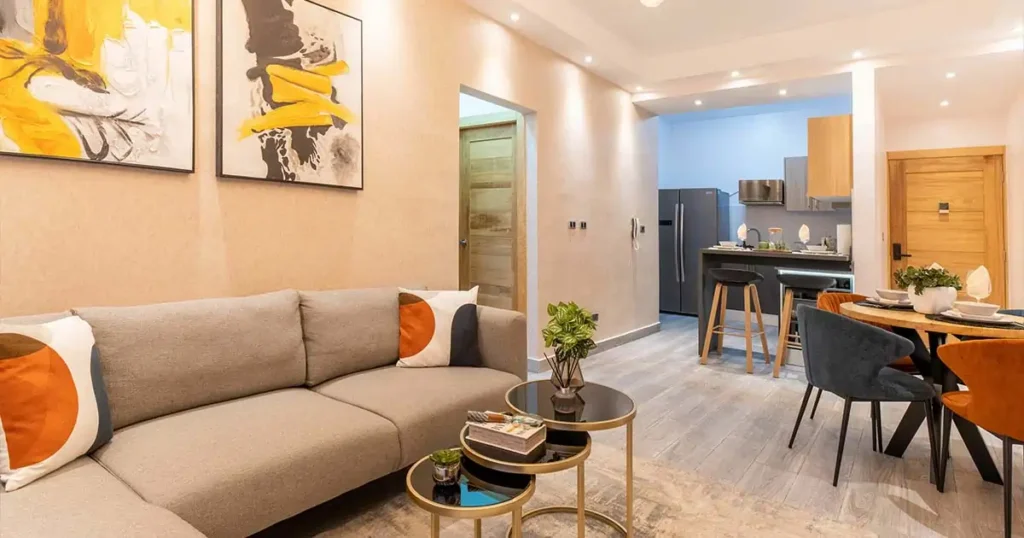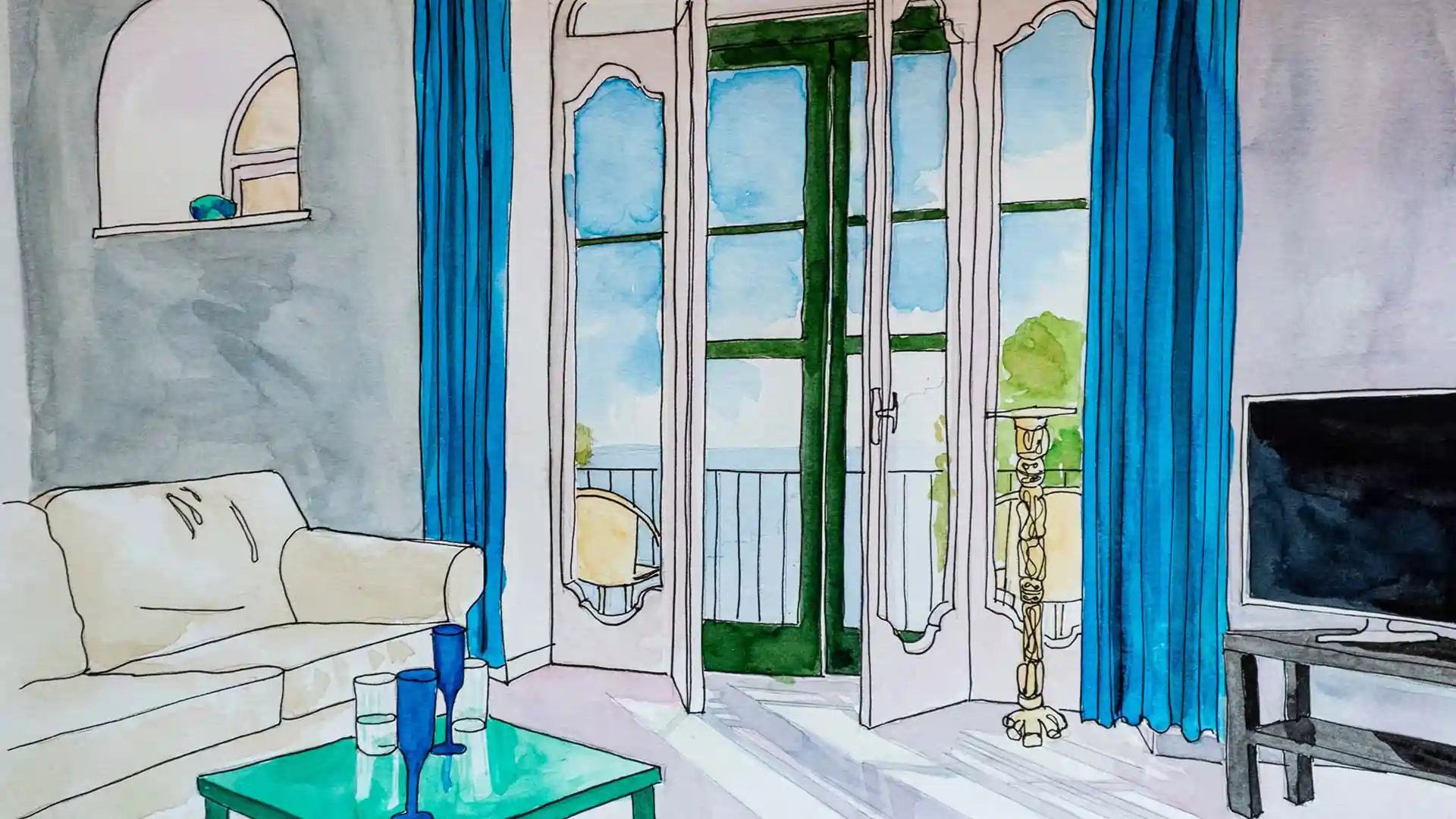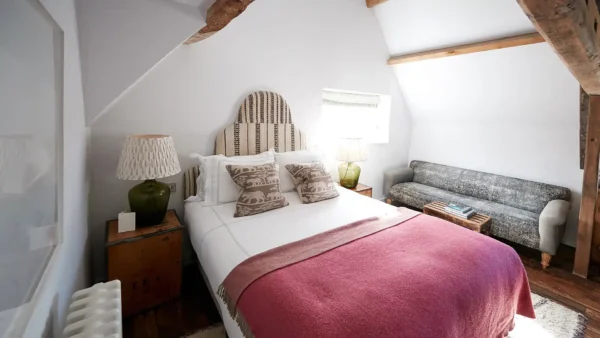Do you have a second property or home you’re thinking of leveraging to make some extra money? Vacation rental services, such as Airbnb or Vrbo, are great opportunities to do just that. Hosting is popular for good reason, but with it comes the risk of damage to your property.
Here’s what you need to know before you rent your home on a vacation rental service.
Determine your eligibility for listing your property on Airbnb or Vrbo
Not all properties meet “rental” criteria. For example, rented apartments or condos will generally require the permission of the landlord or condo board before you can list your space on a home sharing or vacation rental service. Many leases or condo agreements will have clauses stating penalties for sub-leasing, so it’s important to be aware of these before listing your property.
Short-term renting or “sub-leasing” is also not allowed in certain provinces in Canada. For example, B.C.’s government has introduced rules to limit short-term rental activities. Residents will only be able to rent out a single primary residence plus an additional secondary suite as their “short-term rental.”
Does your home insurance company allow short-term rentals?
Allowing strangers into your residence, whether that’s a home you’re currently occupying or own but don’t live in, presents an uncertain level of risk that not all insurance companies are willing to take on. Make sure to seek insurance advice from your broker before listing your property on any home sharing services.
Some insurers (with prior notice) will permit short-term rentals, whereas other companies will not. Note that even those that do may have certain conditions or time restrictions. Here’s a breakdown:
| Insurer | Short-Term Rental Allowed? | Notes |
| Aviva | Yes | Won’t insure standalone rentals (apart from through their cottage program, Elite) If insured resides elsewhere, maximum periods of either 90 days consecutive or 180 days total |
| CAA | No | n/a |
| Cambrian | Yes | Needs a property manager if primary address is 100 km away from rental Won’t insure cottages, condos, or properties with wood stoves as primary heat source Won’t insure heritage homes |
| Chieftain | No | n/a |
| Economical | Yes | Restrictions may apply situationally Cannot be rented to multiple unrelated individuals |
| Intact – Specialty | Yes (Commercial only) | Certain rental properties may be considered high-risk (wood heat, multiple lenders, older homes, etc.) |
| Max | No | n/a |
| Pembridge | No | n/a |
| RSA | No | n/a |
| SGI | No | n/a |
| Travelers | No | n/a |
| Wawanesa | Yes | Short-term rental of primary residence cannot be rented for longer than 30 consecutive days or longer than 180 days (about 6 months) total in a year Short-term rental of a seasonal residence cannot be rented for longer than 60 consecutive days or longer than 180 days (about 6 months) total in a year |
| Portage | No | n/a |
Worth noting: Regardless of the provider, in Ontario insurance companies generally will not permit you to sublet a property. If a subletter should cause damages, it’s unlikely those damages will be covered.
Be cautious about who you’re renting to

There’s a lot of horror stories out there when it comes to vacation rental services, although Airbnb specifically has certain safety checks in place, such as having guests scan their government-issued ID and a two-way review process where guests can review hosts and vice versa.
In the end, it’s the host’s decision on who they rent to. We recommend creating your own house rules to ensure guests are aware of the expectations, such as not permitting smoking, parties, quiet times after dark to be mindful of neighbours, etc. While you can’t know 100% which guests will be great and which won’t be, it’s good to be proactive to minimize your risk. Keep in mind any restrictions around stay-length that your insurer may have as well.
Do some research on local prices and valuable amenities for guests
A good way to ensure a positive experience all-around is to do some research on what the local vacation rental prices are like and what kind of amenities or offerings are appealing to guests. Fresh towels, hygiene products, etc., can go a long way to improve a guest’s experience, and they’re inexpensive. Plus, with an idea of what others are charging for their short-term rentals, you can ensure you’re not overpricing or underpricing your rental endeavour.
Being a good host isn’t as simple as having a property and listing it on your platform of choosing. You’ll also be expected to interact with the guest and respond to all queries regarding booking within the first 24 hours. Guests and hosts are generally expected to have a continuous communication even during a booking, so it’s ideal that you’re able to keep up with this.
Have questions? We’re here to help
Have any questions about renting out your home on a vacation rental platform or homesharing service, like Airbnb? Mitch’s home insurance brokers are here for you. While not all insurance companies offer coverage for short-term rentals, we’re happy to help you find coverage that works for you – and at a great price. Enjoy hosting (plus that supplemental income!) and peace-of-mind all in one.
Looking for home insurance?
Speak with a Mitch Insurance broker today to get a quote on home insurance in Ontario.
Call now
1-800-731-2228







